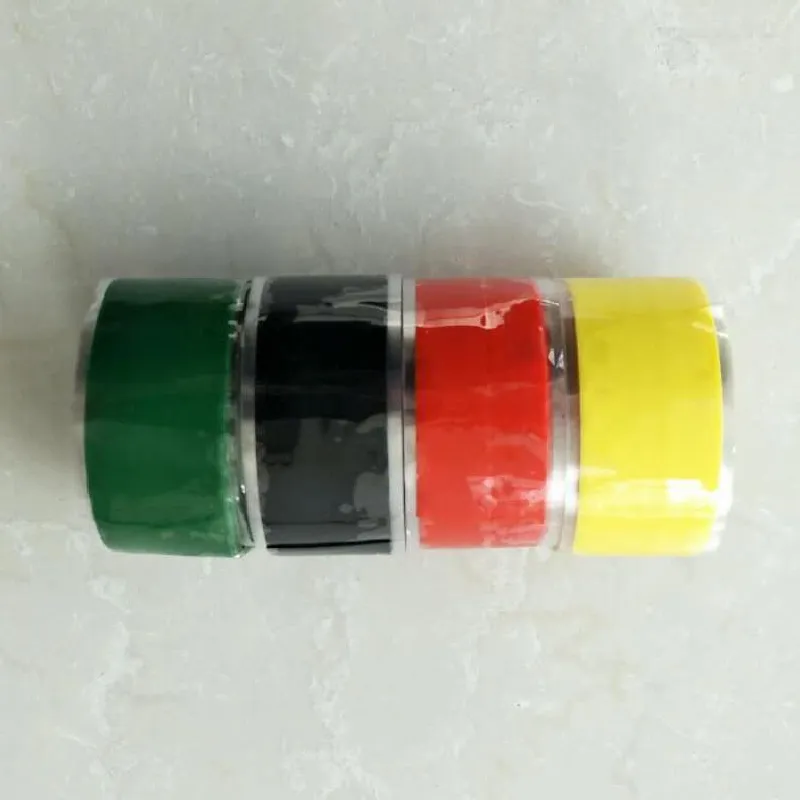The Versatility and Importance of Butyl Sealing Tape
Butyl sealing tape has gained prominence in various industries due to its exceptional adhesive properties and versatility. As a type of synthetic rubber tape, butyl sealing tape is known for its durability, resistance to the elements, and ability to create strong, watertight seals. This article delves into the characteristics, applications, and advantages of using butyl sealing tape across different fields.
Characteristics of Butyl Sealing Tape
One of the primary features of butyl sealing tape is its exceptional adhesion. It adheres well to a variety of surfaces, including metal, glass, wood, and plastics, making it suitable for diverse applications. Butyl rubber is non-curing, which means that it remains pliable and does not harden over time, ensuring a long-lasting bond even in challenging conditions.
Furthermore, butyl sealing tape is highly resistant to moisture, UV light, and extreme temperatures, which makes it ideal for outdoor use. It can withstand temperatures ranging from -20°F to 200°F (-29°C to 93°C), ensuring it maintains its integrity in different environments. The tape is also impermeable to gases and water, making it an excellent choice for sealing applications that require a robust barrier against these elements.
Applications of Butyl Sealing Tape
The versatility of butyl sealing tape allows it to be used in various applications across multiple industries. One of the most notable uses is in the construction sector, where it is commonly employed for sealing roofing materials, windows, and doors. Its waterproof characteristics make it an excellent choice for preventing leaks and protecting structures from water damage.
butyl sealing tape

In the automotive industry, butyl sealing tape is used for sealing windshields and other glass components in vehicles. Its ability to absorb vibrations and shock ensures that these seals remain intact even under fluctuating conditions, thereby enhancing the durability of the vehicle's components.
Additionally, butyl sealing tape is widely used in the HVAC (Heating, Ventilation, and Air Conditioning) sector. It helps in sealing ducts, ensuring energy efficiency, and preventing air leaks. Proper sealing can significantly improve the performance of HVAC systems, leading to energy savings and better temperature regulation.
Moreover, the tape is popular in the manufacturing of electronic devices. Its electrical insulation properties and resistance to environmental factors make it suitable for protecting sensitive components from moisture and dust.
Advantages of Using Butyl Sealing Tape
One of the primary advantages of butyl sealing tape is its ease of application. It can be cut to size and applied manually without the need for specialized tools or equipment. This ease of use enhances productivity and reduces labor costs in various projects.
Furthermore, butyl sealing tape is non-toxic and environmentally friendly, which makes it a safe option for various applications, especially those related to food and medical industries. Its long-lasting nature reduces the frequency of maintenance and replacement, thereby contributing to cost savings in the long run.
In summary, butyl sealing tape stands out as a reliable solution for sealing applications in numerous industries. Its robust adhesive properties, resistance to environmental factors, and ease of application make it an invaluable product for professionals and DIY enthusiasts alike. Whether used in construction, automotive, HVAC, or electronics, butyl sealing tape provides long-lasting solutions that enhance the durability and efficiency of various applications. As technology advances and new formulations emerge, the potential uses of this remarkable tape will likely continue to expand, providing even more opportunities for innovation and improvement in sealing practices.
-
XIANGFAN Rubber Tape-Ultimate Solutions for All Your Insulation NeedsNewsJun.24,2025
-
XIANGFAN Rubber Tape-Protection for Industrial and Residential ApplicationsNewsJun.24,2025
-
XIANGFAN Rubber Tape: Superior Safety and Sealing for Demanding EnvironmentsNewsJun.24,2025
-
XIANGFAN Rubber Tape: Reliable Solutions for Every Electrical ChallengeNewsJun.24,2025
-
XIANGFAN Electrical & Industrial Tape: Powering Reliability Across IndustriesNewsJun.24,2025
-
XIANGFAN Electrical & Industrial Tape: Excellence in Every ApplicationNewsJun.24,2025
